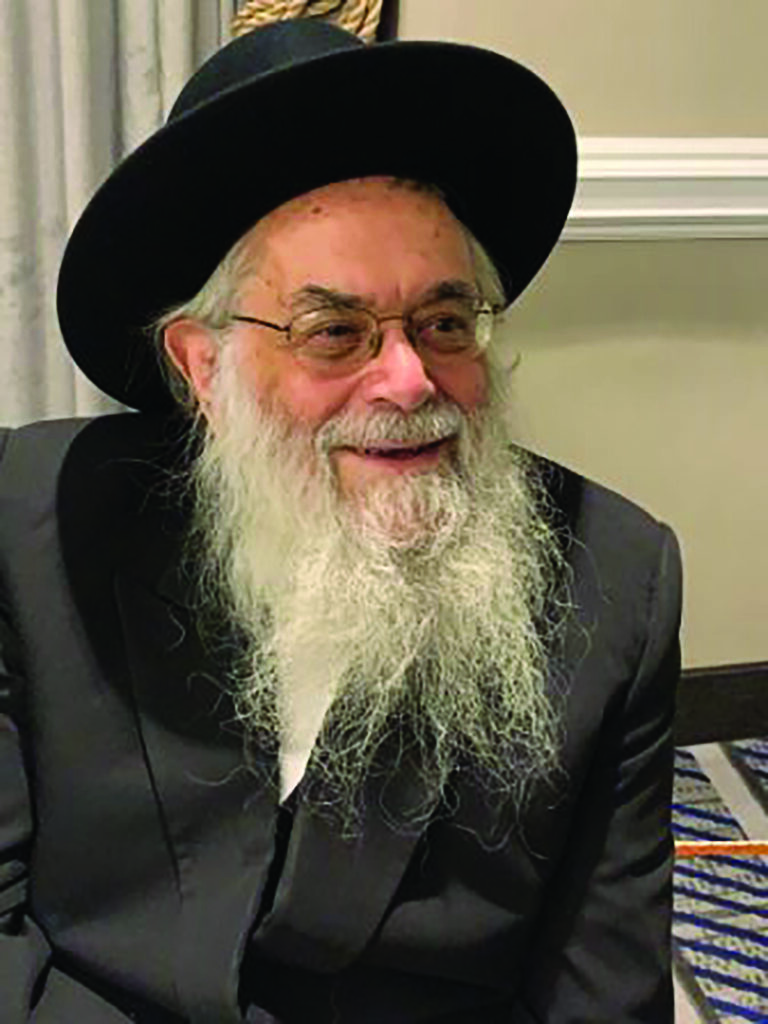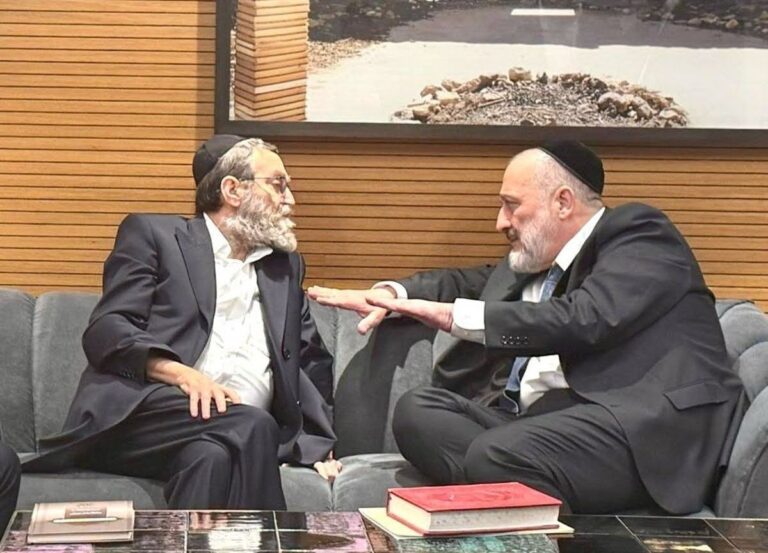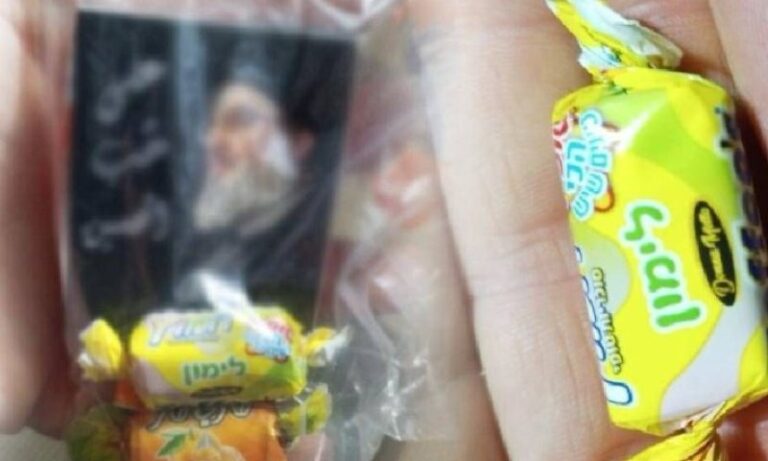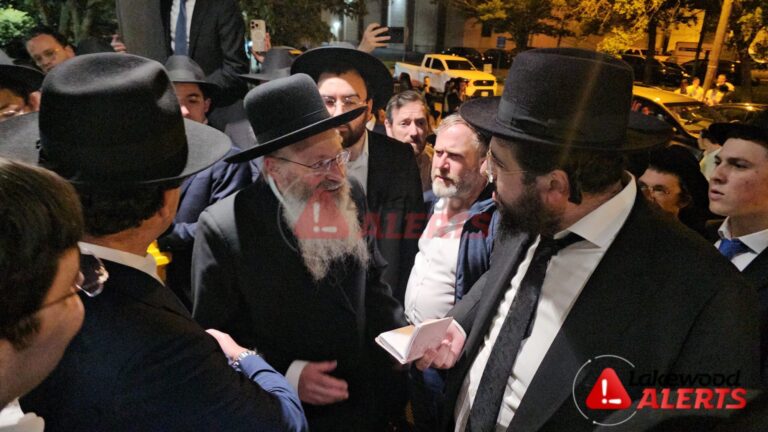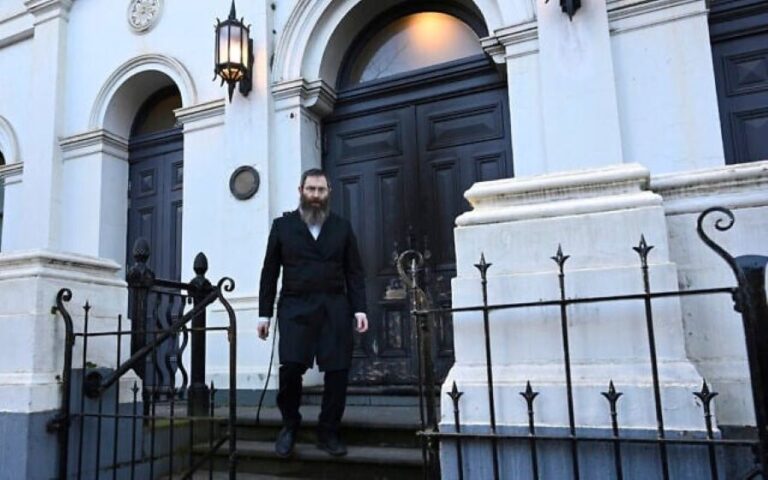A translation and annotation by Rabbi Yair Hoffman
The Tur (OC 111) cites the Talmud Yerushalmi in Brachos 1:1: Said Rabbi Ami, “Whoever does not connect Geulah to Tefillah – the after blessing of Shma of redemption to Shmoneh Esreh – to what is he compared? He is compared to an admirer-friend of the king who has knocked at the door of the palace, and the king went out to greet him to fulfill his request only to find that his friend has run off, and then the king too runs off.
It would appear that this can be explained based upon the pasuk regarding the exile of Mitzrayim, “and the children of Israel moaned (vayizaku) from the labor, and they cried out, and their cry ascended to Hashem from the toil.” Now, it is not mentioned in this pasuk that they davened or prayed to Hashem, nor does it mention that the moaning or crying out was to Hashem. Rather, it simply states vayizaku – without elaboration. Their cry, arose to Hashem.
THE DIBBUR WAS IN EXILE
And it is known (see Zohar II 25; Pri Aitz Chaim Pesach Chapter 7) that which is written in the earlier works that in the exile fo Mitzrayim – that the dibbur – words of prayer were in exile [as well]. Notwithstanding the depth of their pain and agony, they did not have the ability to express themselves in words.
Yet, later, in the parsha of Bikkurim – bringing the first fruits (Dvarim 26:7), the crying out is identified as a crying out to Hashem, and that Hashem heard our cry. Rav Hutner zt”l explained that at the time that they cried out they did not feel or understand that they were praying, they thought that they were moaning in general, only afterward did it become clear to them that this was a cry to Hashem.
THE WORDS OF THE RAMBAM
Let us now preface the wording of the Rambam (Hilchos Avodah Zarah 1:3) that Avrohom Avinu recognized his Creator, and would travel and declare His Divinity in the world until, “A nation was established in the world that knew Hashem.” After a lengthy time in which the Jewish nation remained in Mitzrayim they declined and began to learn from their actions and worshipped idols like they did.. And the foundation that Avrohom Avinu planted was almost forgotten. The nation of Israel returned to the errors and confusion of the world. Yet from Hashem’s love for us and His remembering the covenant with Avrohom Avinu, He sent Moshe Rabbeinu to us..”
A THOUGHT FROM RAV HUTNER
However, it was already explained in Pachad Yitzchok (Pesach 68:3) that this is not just a matter of “Maaseh sh’haya kach hayah – a relating over an incident” – rather it encompasses the very essence and nature of exile – that it is a test to uproot our connection to Avrohom Avinu. This is the meaning of what Hashem said to Avrohom (Bereishis 15:13), “And your descendants shall be strangers..” – that is that the recognition of your descendants and the connection to the foundation of Avrohom Avinu shall yet remain in Galus.”
WHERE OUR VOICE COMES FROM
“And Hashem Heard our voice” – even without them knowing nor recognizing during that time – the kol cry, or voice, emerged from the depth of the soul which we possess as an inheritance from Avrohom Avinu. It is a root of belief planted ever so deeply within the heart of every Jew.
The kol emerges from the depths, therefore, each person’s voice is unique and different from one another as the voice comes from an internal root. And from this voice, it is understood and recognized from whom we descend.
“And our cry arose.. And Hashem remembered His covenant with Avrohom..” The meaning is not “hearing our cry” as one matter and “remembering Avrohom” as a separate matter. Rather, Hashem Remembered the covenant with Avrohom through hearing the voice of Avrohom within the voices of Klal Yisroel. Only afterward did it become clear what that voice was.
This is actually the order and manner of our Shmoneh Esreh Tefillah. The first bracha is called Avos – we say, “Elokai Avrohom” that which lies within us, of the foundation of Avrohom Avinuwhich is the root of Emunah – belief in Hashem – i.e. the portion of our forefathers that abides within us. “Mogain Avrohom” – that Hashem protects the foundation of Avrohom Avinu that is entrenched within us – to ensure that it will not be uprooted. And in the blessing of “Shma Koleinu” it begins with “Koleinu – our voice” – the voice, and it ends with “shomaya Tefillah” – Tefillah is already within the parameters of “words.” Those words are recited by everyone but it is possible from “the voice” – to recognize the root from which it emerges.
The beginning of our prayer is with Birchas Avos – the Blessing of Avos. We are descendants of Avrohom Avinu. The connecting of Geulah to Tefillah means the redemption that took us out of Mitzrayim, the root of our forefathers will never be displaced or disconnected or forgotten. The words are the words of those who have been redeemed. In other words, through the power of Avrohom Avinu that lay within us is how we say what we are about to say. We immediately connect redemption to prayer and that is through the introduction of Birchas Avos.
GOING BACK TO THE YERUSHALMI
Now with this we can better understand the Yerushalmi cited in the Tur – the analogy of the admirer-friend that knocked on the door of the king. [The Hebrew is “Ohavo” – the loved one.] The Ohavo is specific. It refers to Avrohom Avinu, who is called “My loved one (see Yishayahu 41:8).” If he davens immediately, then he meets with the King, but if he runs off, then the King lso runs off. This means: At that moment in which we mention Geulah immediately before Tefillah that connection to Avrohom Avinu awakens within us and lives within us. But, if we run off then that moment of inspiration also leaves, and the King does not find Avrohom Avinu, and He also runs off.
Please note that no permission was obtained to translate this selection from his Maamarei Pesach. The translator can be reached at [email protected]

